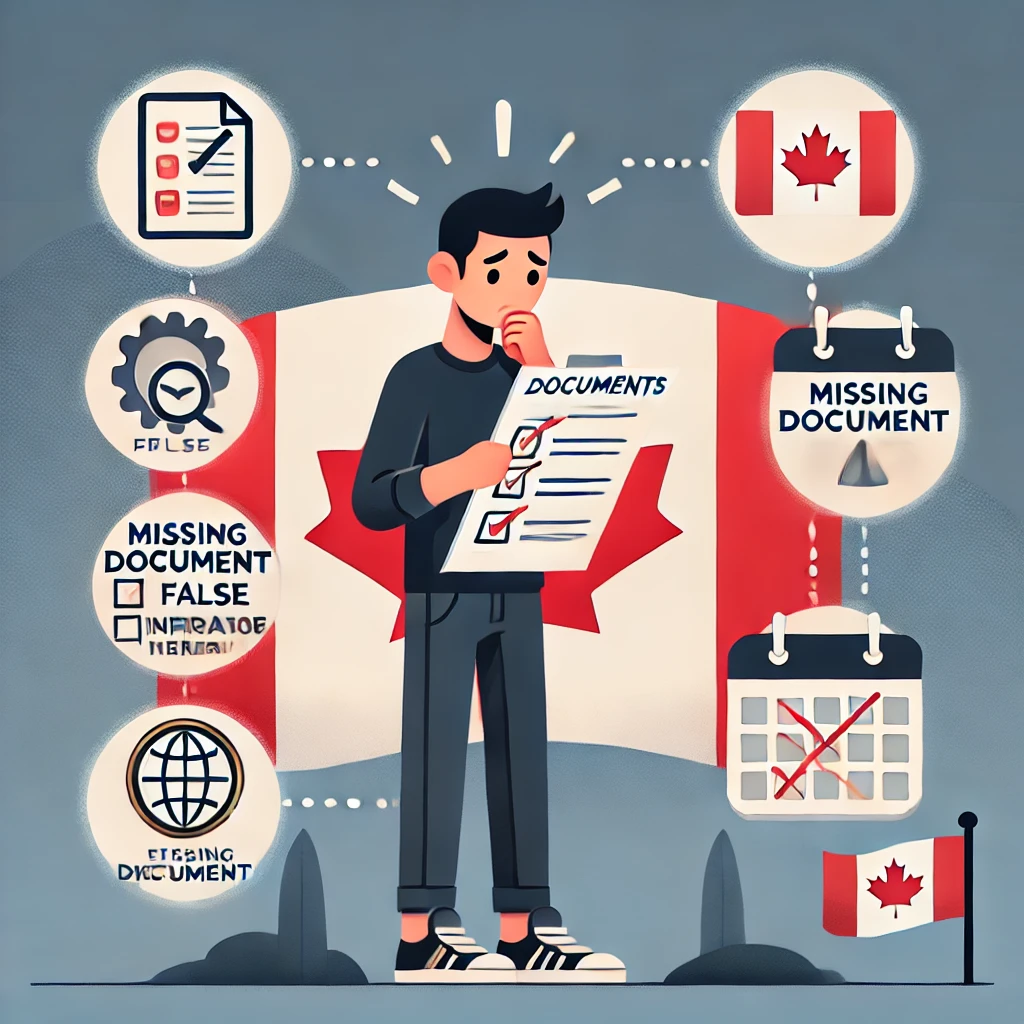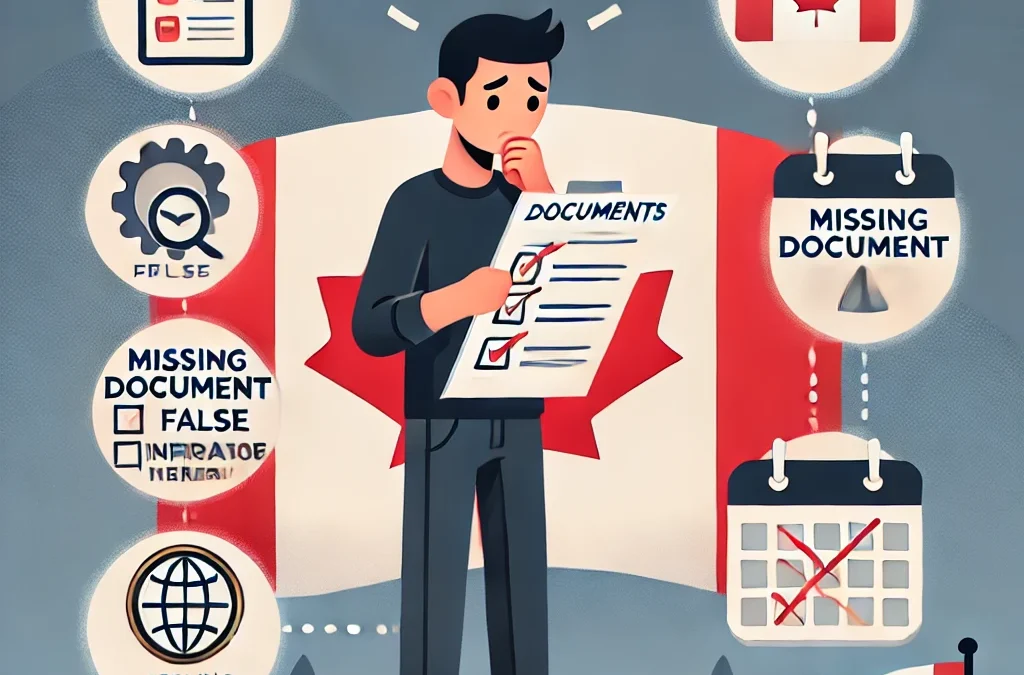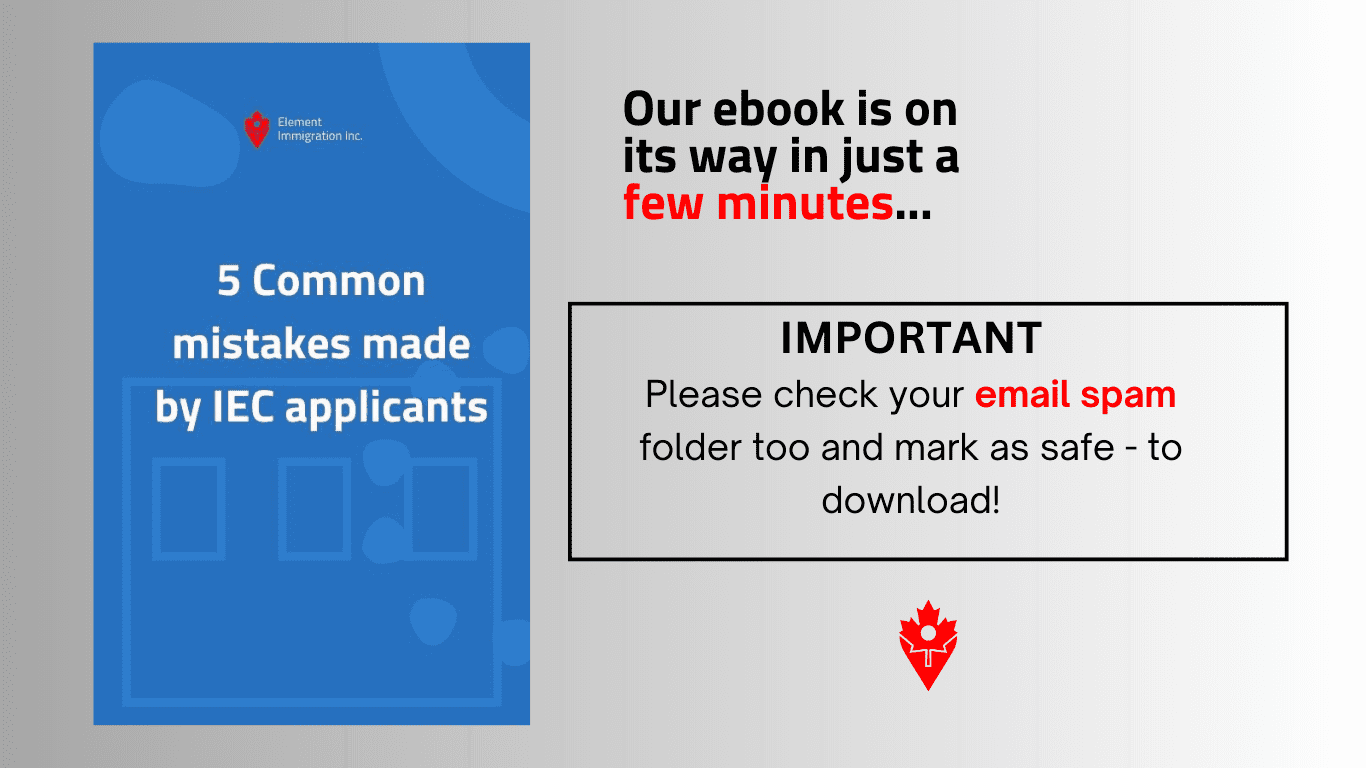Avoid These Common Immigration Mistakes

Embarking on the journey to immigrate to Canada is an exciting yet challenging adventure. Whether you’re moving to be with family, seeking new job opportunities, or simply looking for a fresh start, the process can be complex. Avoiding common mistakes can make all the difference in ensuring a smooth and successful application. In this blog post, we’ll explore some frequent immigration errors and how you can steer clear of them. By the end, you’ll have the knowledge you need to avoid these pitfalls and confidently pursue your Canadian dream.
Crucial First Steps: Preparation is Key
Even before diving into the application process, some key groundwork paves the way for success.
- Identify Your Immigration Path: Canada offers a variety of immigration programs catering to diverse needs and skillsets. Explore Express Entry for skilled workers, Provincial Nominee Programs for specific regional needs, or the Family Sponsorship Program for reuniting with loved ones. Researching these programs on the Immigration, Refugees and Citizenship Canada (IRCC) website is a great first step.
- Gather Required Documentation: Each program has a specific document checklist. Obtaining transcripts, work experience letters, proof of funds, and medical certificates can take time. Start collecting these documents well in advance to avoid delays.
- Assess Your Language Skills: English and French are Canada’s official languages. Meeting the minimum language proficiency requirements is crucial for most programs. Consider taking language tests like the IELTS or CELPIP if needed.
Common Mistakes to Avoid: Ensure a Smooth Application Process
Once you’ve identified your path and gathered your documents, it’s time to tackle the application itself. Here’s where awareness of common missteps can save you time and frustration:
1. Missing Documents
One of the most frequent mistakes applicants make is failing to submit all the required documents. Missing even a single document can lead to delays or even a rejection. An incomplete application is a recipe for delays or even rejection. Double-check the IRCC checklist for your program and ensure everything is present. Consider creating a document checklist of your own to ensure nothing slips through the cracks. You can find any application package or form here.
Key Areas to Focus On:
- Commonly Missed Documents: Birth certificates, police clearances, marriage certificates, employment letters, proof of funds, educational credentials, and language test results.
- Organizational Tools: Use checklists and folders to keep track of required documents. Make a checklist of all the documents required for your specific visa or permit type and tick them off as you gather each one.
- Proactive Measures: Start gathering documents well in advance and verify their validity and correctness. Ensure that all documents are translated into English or French, as required.
- Certified Copies: Provide certified copies of important documents. Ensure that the certifying official is recognized by the Canadian immigration authorities.
2. Providing False Information
Honesty is paramount. Providing false information on your application is a serious offense and can lead to a permanent bar from entering Canada. If you’re unsure about anything, seek clarification from an official source or a licensed immigration consultant.
Key Areas to Focus On:
- Common False Information: Incorrect work experience, educational qualifications, personal details, and criminal history.
- Legal Implications: Misrepresentation can lead to a ban from entering Canada for five years. It’s crucial to provide accurate and truthful information to avoid such consequences.
- Honesty is Key: Always be truthful in your application. If you’re unsure about how to present certain information, seek advice from a professional rather than taking the risk of misrepresentation.
- Verifiable Information: Ensure that all the information you provide can be easily verified by immigration authorities. This includes employment history, educational qualifications, and financial stability.
3. Completing Application Forms Incorrectly
Errors in application forms are a common reason for delays and rejections. Read each question carefully and answer truthfully. Incomplete or unclear information can lead to processing delays or rejections. If English or French is not your first language, consider getting help from a certified translator to ensure clarity and accuracy.
Key Areas to Focus On:
- Common Mistakes: Misspelled names, incorrect dates, incomplete sections, outdated information, and failing to sign forms.
- Tips: Double-check every entry, seek a second pair of eyes for verification, and use online resources or professional services to ensure accuracy.
- Attention to Detail: Make sure to follow the instructions provided in the application guides. Pay attention to specific details such as date formats and required fields to avoid common errors.
- Use Official Guides: Refer to official guides and instructions provided by IRCC for each type of application. These guides are regularly updated and provide the most accurate information.
4. Paying the Incorrect Fee
Paying the wrong application fee can result in your application being returned. Application fees vary depending on the program. Ensure you pay the correct amount to avoid processing delays. Check the IRCC website for the latest fee schedule before submitting your application.
Key Areas to Focus On:
- Fee Overview: Different fees for various immigration processes such as work permits, study permits, and permanent residence applications.
- Verification: Always check the latest fee information on official websites like IRCC (Immigration, Refugees and Citizenship Canada).
- Payment Methods: Ensure that you use the correct payment method and keep a record of your payment receipt. If you’re unsure about the fee, use the fee calculator tool available on the IRCC website.
- Currency and Conversion: Ensure that you pay in the correct currency and account for any conversion fees if you are paying from abroad.
5. Missing Your Window to Renew
Failing to renew important documents on time can lead to serious consequences, including deportation. Visas, work permits, and Permanent Resident (PR) cards all have expiry dates. Set calendar reminders well in advance for upcoming renewals to avoid last-minute scrambles.
Key Areas to Focus On:
- Documents to Renew: Work permits, visas, permanent resident cards, health cards, and driver’s licenses.
- Reminder Systems: Use calendar alerts and reminders. Set multiple reminders starting a few months before the renewal date.
- Early Action: Start the renewal process early to account for any unexpected delays. This is particularly important for documents that have a significant processing time.
- Know the Deadlines: Be aware of the specific deadlines for renewals. Some documents may require you to start the renewal process months in advance.
6. Not Seeking Professional Advice
The immigration process can be complex, with eligibility requirements and application procedures varying depending on your specific circumstances. Consider consulting a licensed immigration consultant for expert advice. An experienced consultant can help you navigate program options, ensure your application is complete and accurate, and represent you throughout the process, potentially saving you time, money, and stress. Read our blog on why it is important to hire a immigration consultant.
Key Areas to Focus On:
- When to Seek Help: Complicated cases, language barriers, legal issues, and understanding detailed requirements.
- Finding Reputable Professionals: Look for licensed immigration consultants or lawyers who have good reviews and a track record of successful cases.
- Benefits of Professional Guidance: Professionals can provide personalized advice, help you avoid common pitfalls, and ensure that your application is complete and accurate. They can also represent you in communication with immigration authorities.
- Cost vs. Benefit: Consider the cost of professional services against the potential benefits of avoiding delays and rejections. Investing in professional advice can save you time and stress in the long run.
Given the complexity of the immigration process, seeking advice from immigration consultants or lawyers experienced in Canadian immigration law can offer valuable insights, enhancing the chances of a successful application.
For professional guidance and assistance tailored to your specific situation, you can contact:
Element Immigration Inc.
- Phone: 604-616-0967
- Email: info@elementimmigration.com
Our experienced team can provide comprehensive support, ensuring you navigate the immigration landscape with confidence and clarity. Don’t hesitate to reach out for personalized assistance on your journey to a fulfilling career in Canada.
7. Insufficient Evidence
Providing adequate evidence to support your application is crucial.
Key Areas to Focus On:
- Types of Evidence: Financial stability, job offers, family ties, academic credentials, proof of language proficiency, and health examinations.
- Presentation: How to gather and present strong supporting evidence. Ensure that all your evidence is clear, well-organized, and corroborates your application claims.
- Detailed Documentation: Provide detailed and specific documentation. For example, if you’re providing proof of employment, include detailed job descriptions, contracts, and reference letters.
- Consistency: Ensure that all evidence is consistent with the information provided in your application. Any discrepancies can raise red flags and lead to further scrutiny.
Conclusion
Avoiding these common immigration mistakes can significantly smoothen your path to Canada. Thoroughness, accuracy, and professional advice are your best allies in this journey. Remember to stay organized, be honest, and seek help when needed. With these tips in mind, you’ll be well on your way to successfully immigrating to Canada. Stay proactive, and keep yourself updated with the latest immigration rules and procedures. Your Canadian dream is within reach—just ensure you avoid these common pitfalls.
By being vigilant and informed, you can avoid the frustrations and setbacks that often accompany the immigration process. Good luck on your journey, and welcome to Canada!


Recent Comments